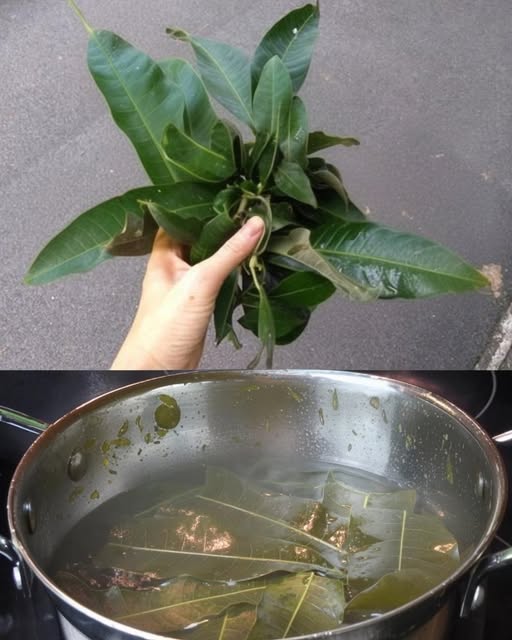Mangoes are well known for their sweet, tropical flavor and juicy texture—but there’s more to the mango tree than just its fruit. Across Asia and other parts of the world, mango leaves have long been used in traditional healing practices. And now, researchers are beginning to explore the unique compounds found in these vibrant green leaves and their potential health benefits.
Whether brewed into tea or applied topically, mango leaves may support wellness in a variety of ways. Here are some of the most promising uses.

Supporting Healthy Blood Sugar Levels
Maintaining stable blood sugar is essential, especially for those managing conditions like diabetes or prediabetes. Mango leaves contain naturally occurring compounds, including antioxidants and plant polyphenols, that may support healthy glucose metabolism.
In traditional practices, mango leaf tea has been used to help the body process sugars more effectively. Early studies, including research published in the Journal of Ethnopharmacology, have found that mango leaf extract helped reduce blood sugar levels in diabetic mice. While more research is needed in humans, these results are promising.
Promoting Natural Detoxification
Our bodies encounter toxins daily, from environmental pollutants to processed foods. Mango leaves contain antioxidant compounds—such as quercetin, mangiferin, and gallic acid—that may help the body neutralize and eliminate harmful substances.
Some traditional practitioners use mango leaf tea or supplements to gently support kidney and liver function. Because the leaves are naturally diuretic, they may help promote regular elimination and fluid balance.
Aiding Digestion and Soothing the Stomach
If you experience occasional bloating, gas, or indigestion, mango leaves may offer gentle relief. Compounds like mangiferin and lupeol are believed to have gastroprotective properties. In animal studies, mango leaf extract showed results comparable to over-the-counter medications used to relieve stomach discomfort.
Mango leaf tea is often used in folk remedies to ease common digestive concerns, though it should not replace medical treatment for ongoing or serious gastrointestinal issues.
Encouraging Relaxation and Stress Relief
In today’s fast-paced world, finding natural ways to unwind can be beneficial. Mango leaves contain compounds that may help promote calmness by supporting the body’s response to stress.
In a 2019 study, mango leaf extract was associated with reduced signs of anxiety in animals under stress. While further human research is needed, many people find a warm cup of mango leaf tea calming and soothing after a long day.
Topical Uses for Skin and Hair
Beyond their internal benefits, mango leaves are also used externally in natural beauty routines. When crushed into a paste, infused into oil, or brewed into a rinse, they may help support skin and scalp health:
- Hair Care: Mango leaf-infused water can be used as a rinse to enhance shine. The leaves’ antioxidants may help strengthen hair follicles and reduce dandruff.
- Skin Relief: The anti-inflammatory properties in the leaves may help calm irritation from minor cuts, sun exposure, or insect bites.
- Face Care: Dried mango leaf powder can be blended into face masks or scrubs to gently exfoliate and brighten the skin.

Conclusion
Mango leaves may not be as well known as the fruit itself, but they’ve earned their place in many traditional wellness routines. From supporting digestion and relaxation to offering gentle skincare benefits, these versatile leaves are rich in natural compounds that promote overall well-being.
Before adding mango leaf products or supplements to your health routine, especially if you have a medical condition or take medications, it’s a good idea to consult with a healthcare professional. When used thoughtfully, mango leaves can be a simple yet powerful way to connect with centuries of natural healing wisdom.
